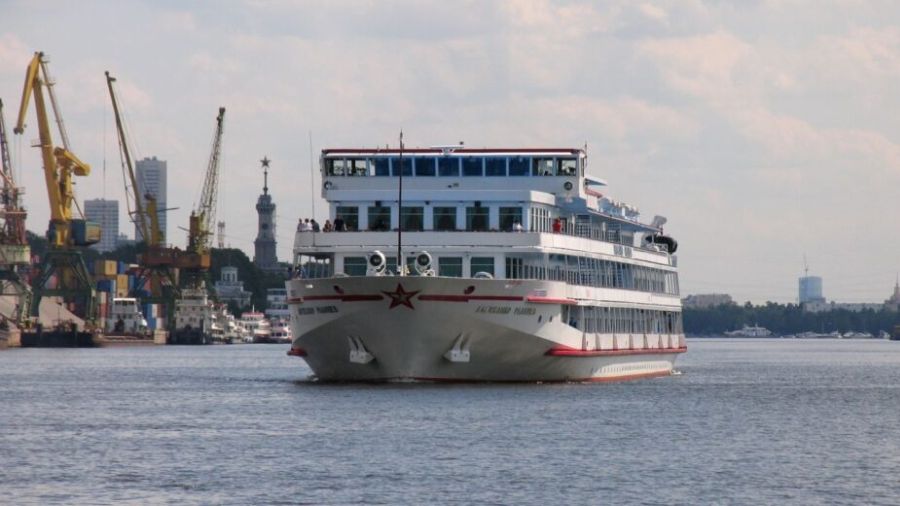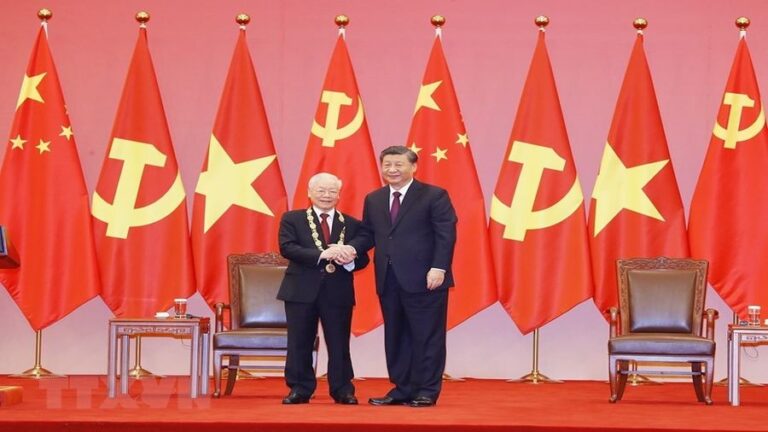Russian River Transport Revolution – A Project with Geopolitical Ramifications
If done properly, Russia’s wide rivers and preexisting canals with some upgrades could have an impact on international trade and create some previously impossible shipping routes.
Recently the Russian government revealed a plan to radically change cargo transport within the nation that could even have an international geopolitical impact. There is a quest to revolutionize the transport of goods going on globally. As it stands today, looking back on the 20th century, technology still looks much like it did during the early Cold War. We have trucks on highways, trains, boats and jet airplanes. True, all of these major forms of transporting goods have become more efficient, there are some very fast trains out there now, and in terms of sea transport everything is vastly cheaper than ever before. This has helped lead to the rise of today’s China. Without cheap sea exports they’d be living in a much different, less wealthy nation and that is exactly why Washington and friends do things like make that lovely AUKUS agreement and surround the South China Sea to the best of their ability.

Washington wants China to be surrounded so they can have the ability to cut off Beijing’s access to their cargo hauling golden goose. This is why the Chinese came up with the whole idea of the Belt and Road Initiative. This allows China to circumvent NATO encirclement and could be one of the biggest and most expensive “plan B” projects in human history.
On the other side of the world there is a sort of Green transportation pseudo revolution mostly starring the brilliant showmanship of Elon Musk and his offers to the scientifically illiterate public. Self-driving semi-trucks and the mysterious “HyperLoop” prop up his empire’s bloated stock prices. This growing trend of “vaporware” in all forms of development in the West where feelings and excitement about a technology outweigh its viability and feasibility is quite an interesting phenomenon. The concept of the Green New Deal is really the apex of this “feels = reality” way of looking at technology and development. Although the methodology may be off, it is certainly worth the West’s time to keep searching for some new development in transport that could be a game changer.

And so, China in terms of transport wants to maximize and diversify routes, the West is looking for some sort of zero-carbon-emission futuristic Green answer to a problem that may not exist, and Russia is going to put a large stack of chips down on the most medieval form of cargo transport – river hauling. We live in interesting times.
The Russian government is considering investing up to $10.3 billion to update the nation’s river freight capabilities. Considering the fact that river transport is pretty much dead (or at the very least extremely limited in scale) in most of the world this decision sounds strange. The Ohio & Erie Canal near my place of birth is the perfect example of this. It was a slow, limited capacity, surprisingly expensive form of moving goods that is reliant on an infrastructure that is very “organic” and susceptible to flooding, drought and all sorts of other issues that trains and trucks are not. In fact, it combines the linear nature of train hauling with the limited capacity and weather factors that affect semi-trucks into a worst of both worlds. So why would the Russians put so much money down on a technology that was obsolete in America before WWI started?
If we read the tea leaves, the logic looks something like this. With some modifications including widening and deepening some locks and upgrading other infrastructure, the miracle of ultra-cheap shipping by freighter on the high seas could work within Russia itself. Essentially it is taking this Chinese transport model and plopping it onto pre-existing rivers and canals at home which can be accomplished relatively “cheaply” by government project standards. The length of Russia’s river system would allow it to become almost like a new Suez or Panama canal for certain nations.

This project may sound like something very minor and internal for Russia but it has the potential to have a major effect on the world geopolitically. At the very least it has been pointed out that with these infrastructure upgrades put in place, some sort of mega freighter could travel freely between the Azov/Black Sea, the Caspian Sea, the Baltic Sea and the White Sea. This would make Iran become neighbors with Europe in a transport sense overnight and would certainly give Tehran some breathing room as their nation’s geography makes it very “blockadable” by sea. It could also help relieve some of Kazakhstan’s difficulties of being highly landlocked.
Turkey and Russia have often been at odds historically and their ability to blockade the Black Sea has always been a problem. So it would be to Russia’s advantage to have an alternative means of shipping from the Black Sea if need be.

The Rivers of Siberia have the potential to be able to take the riches of that region and transport them by containerships all over the world, pending those boats can make it up to the Arctic Ocean and not run aground. Putin has been a big advocate of developing the Arctic for many reasons, this being one of them. Although Siberia is famous for its minerals and wood, it also produces a lot of food and this infrastructure will help Russia continue to grow as a major food producing titan which is a factor in the great relationship between Moscow and Beijing. The food production capabilities of Southern Siberia are beyond comprehension, but have been kept dormant by the region’s landlocked isolation.
If done properly, Russia’s wide rivers and preexisting canals with some upgrades could have an impact on international trade and create some previously impossible shipping routes. This will not be done overnight but it is something for geopolitics fanboys to keep an eye on which ironically harkens back to the very birth of Russia, which heavily used river transport from its inception up until the fall of the USSR. Russia was born with this infrastructure mostly in place now it is time for the Russians to make sure that mega container ships can start using it.







